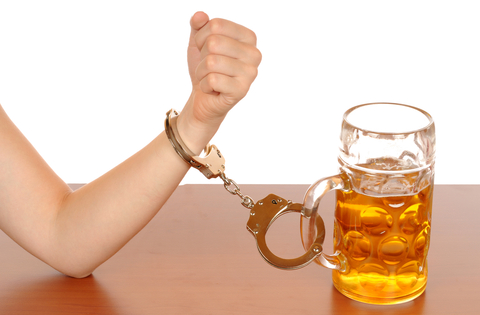In my busy Dublin counseling practice, seeing clients with addiction problems is about as common as a family doctor seeing a client with a cold. By far and away, substance abuse problems are the most common reasons parents/families will bring a young client into my practice. When asked what the next step is, I often assess whether or not the client’s problems are severe enough to warrant residential treatment or whether they are able to stay clean with outpatient treatment.
As a clinician, it is my job to determine what is the best course of action for a client. To determine that, I have to understand why a particular client has a problem to begin with. This is vitally important because how can you possible decide what interventions will work if you have no idea why they have the problem to begin with? I am trained to ask these questions and naturally my mind is always working on coming up with new questions so I can attempt to answer them.
While it is important to us to ask why substance abuse is an issue with a particular client, I do not see anybody outside of the field of psychology asking these questions. In the news, we read all the time about huge drug busts and the raging cartel wars in Mexico. Much of the national press focuses all of their attention on the drug war and how to prevent drugs from coming in to this country. Even with the legalization debate, much of the focus is on how to keep these drugs out of the hands of children.
But what I am not seeing is anybody asking why do we have an entire generation of American youths who are preoccupied with getting high all the time? This question goes beyond an individual case exploration of why one particular client is having substance abuse problems. I am asking the question of what is wrong with our country, society, culture, etc. that would lead so many youths to want to feel high all of the time?
When I was in high school 16 years ago, plenty of people drank but only a small percentage of students smoked marijuana or used any other drugs. In fact it was a total surprise in college when you heard about people experimenting with harder drugs such as ecstasy and cocaine. Nowadays, I have several clients who started drinking for the first time in middle school and began using hard drugs such as heroine, cocaine, and ecstasy by their Sophomore year in High School. It is easy to assume that many of these kids are bad kids who do not care about school, but the truth of the matter is that we have more and more parents of honor students who are bringing their kids in for substance abuse treatment.
When asked why they would risk everything that they worked for, they simply reply that everybody is doing it and its is easier to find drugs than get alcohol. What’s even more amazing, is that many of our clients will actually be angry at their parents for not letting them smoke pot and will try to convince them why its okay (i.e. research studies, other parents letting friends do it, etc.).
When confronted with severe consequences such as rehab, loss of college money, military school, etc., many of these students will still try to find ways around the rules and will continue using. They will try to beat the drug tests or will switch over to synthetics such as K2 which do not show up as marijuana. We are always amazed at the extent that our clients will take risks to continue using. When asked what makes them take the risks, they simply reply that they just really love the feeling of being high and would rather risk losing college money than quit using.
While it shouldn’t come as a shock because we work with it so often, I am still amazed at how entrenched some clients are in their substance abuse habits. The scary thing is that this problem is growing every year and children whom you would never think would abuse drugs are turning to it.
So why is this happening? Where have we gone so wrong as a country that we have an entire generation of kids who want to not feel anything or just want to feel good at any costs? I think we have to take a hard look at ourselves and realize that perhaps we are to blame for this problem.
In the 1980’s, we were so preoccupied with self-esteem that we created a movement in our homes and schools that attempted to make children feel good about themselves. There is nothing wrong with making a child feel good about themselves but let’s face it, we cannot feel good all of the time. If we make a mistake, we need to know that we made a mistake. If we did poorly on something, we need to know that we did poorly on it. The self-esteem movement had good intentions but the problem with it is that we raised an entire generation of kids who had no idea of how to handle criticism or negative emotions. Anytime a child messed up, we moved quickly to prevent them from feeling bad about it and raised their self-esteem.
As a result, kids got no experience in learning how to sit with negative emotions such as disappointment, shame, guilt, anger, frustration, etc. I believe this is a huge contributor to the substance abuse problem among today’s youth. They have been raised with no ego strength to deal with negative emotions so they look for the easy way out and use substances as a way to numb out the negative emotions or experiences of life. Furthermore, we trained kids that we should always work to feel good about themselves so should we be surprised that they found that substances make them feel good all the time without really having to put forth any effort? How easy it is to drop a pill and feel amazing or to take a hit off a joint and feel good?
In addition to the self-esteem movement, I think we need to blame ourselves for letting television and music for raising our children. We have become such a consumer society that television and music has become a marketing device without anyone knowing about it. Television is so focus on sex, drugs, alcohol, and material goods that television shows have literally glorified getting high, drunk, and acting recklessly. I know Jersey Shore has a loyal fan following but how surprised can we be when children watch a show glorifying drug and alcohol use to an hedonistic extent and then we see kids doing the same thing in their lives. It has become cool to be rich and drunk ergo becoming the new American dream. Kids do not want to work hard anymore to be successful, they want the new American dream which is to be rich and famous and do as little as possible.
These are the real reasons why I think America has such a huge drug problem. We want to spend so time talking about the drug war and spending billions of more dollars on preventing drugs from hitting the streets when the real problem is with the demand for the drugs in the first place. The real question is where do we head next to help fix this problem? What changes do we need to make in our individual lives, homes, counseling practices, etc., to address these issues or even to engage in a discussion of these issues?

